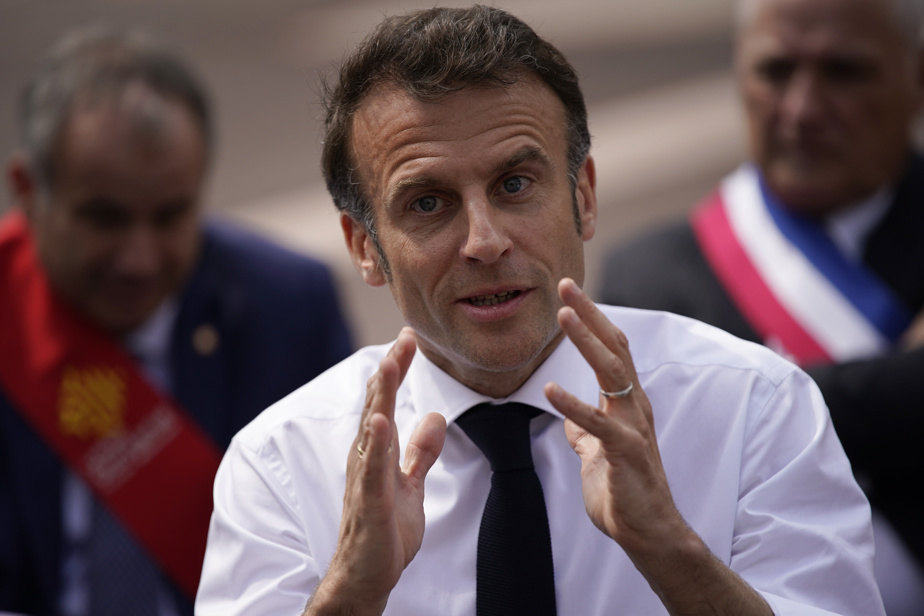(Paris) French President Emmanuel Macron admitted that he should have gotten “wet” more to defend the disputed pension reform, against which the mobilization continues despite its promulgation, in an exchange with readers of a daily posted Sunday evening.
Since the presentation of his pension reform (which raises the legal retirement age to 64) in January, he had remained in the background at the Élysée Palace, making little travel in the country.
“Perhaps the mistake was not being present enough to give consistency and carry this reform myself,” he said. “I have to re-engage in public debate because there are things that are unclear. So I do it everywhere, “says Emmanuel Macron to the readers of the daily Le Parisien.
As Emmanuel Macron continues his offensive to turn the page on the pension reform crisis, each of his trips is disrupted by opponents of the reform.
Parades under the banner of the unions are replaced by more spontaneous, but almost daily operations, in particular pot concerts. And demonstrators do not fail to shout “Macron resignation” as he passes.
The mobilization against the pension reform is distinguished from previous ones by its duration, underlines the political scientist Pascal Perrineau who notes “a bad mood” still as high in the opinion polls.
The “anger” expressed against the pension reform will “not prevent me from continuing to move”, assured Mr. Macron on Wednesday.
Emmanuel Macron, who celebrates the first anniversary of his re-election on Monday, has given himself a hundred days to relaunch a deadlocked mandate by launching all-out projects, with measures on work, health, immigration or the fight against fraud.
On a long-awaited text on immigration, Emmanuel Macron wished that those who “have no reason to be here” could be “accompanied home” more quickly while improving integration.
According to a poll published Saturday by Ifop for the Journal du Dimanche, nearly three out of four French people say they are dissatisfied with Mr. Macron, whose unpopularity is close to records since the so-called yellow vests crisis in 2018.

